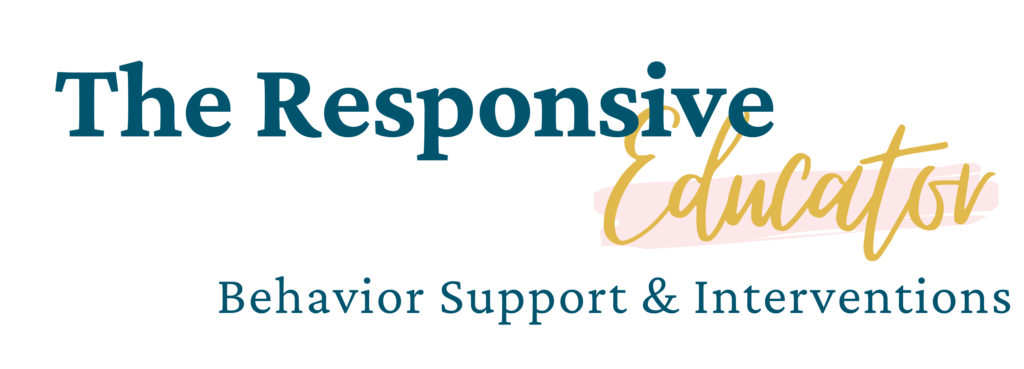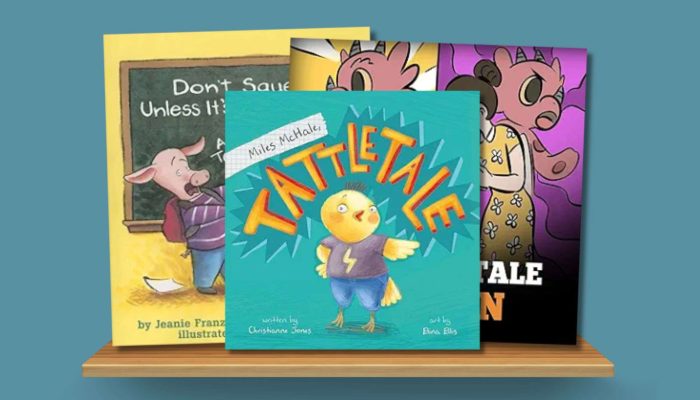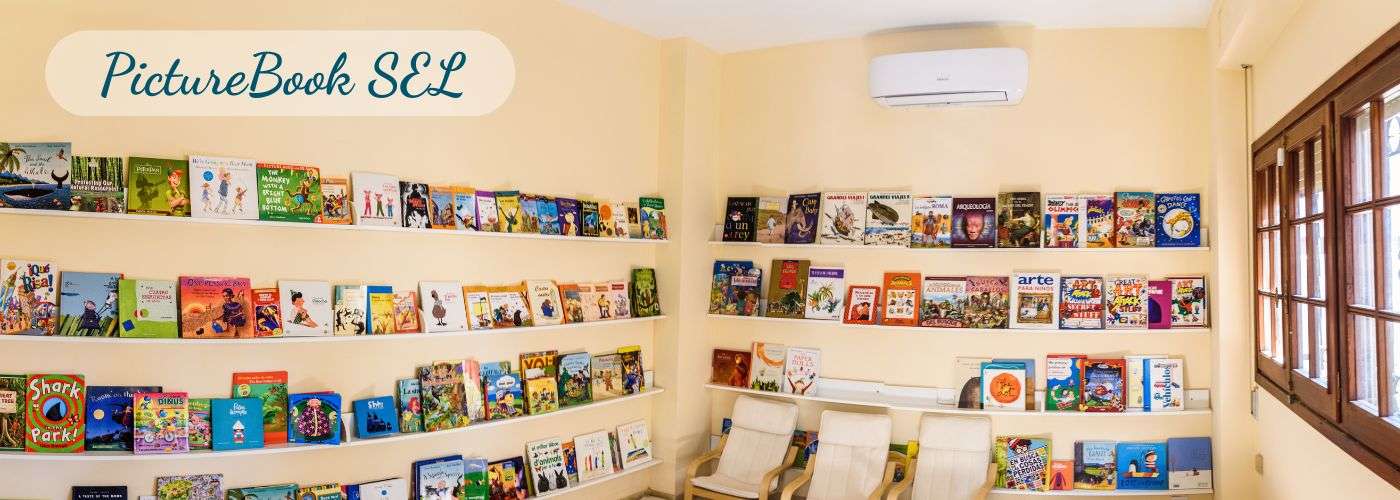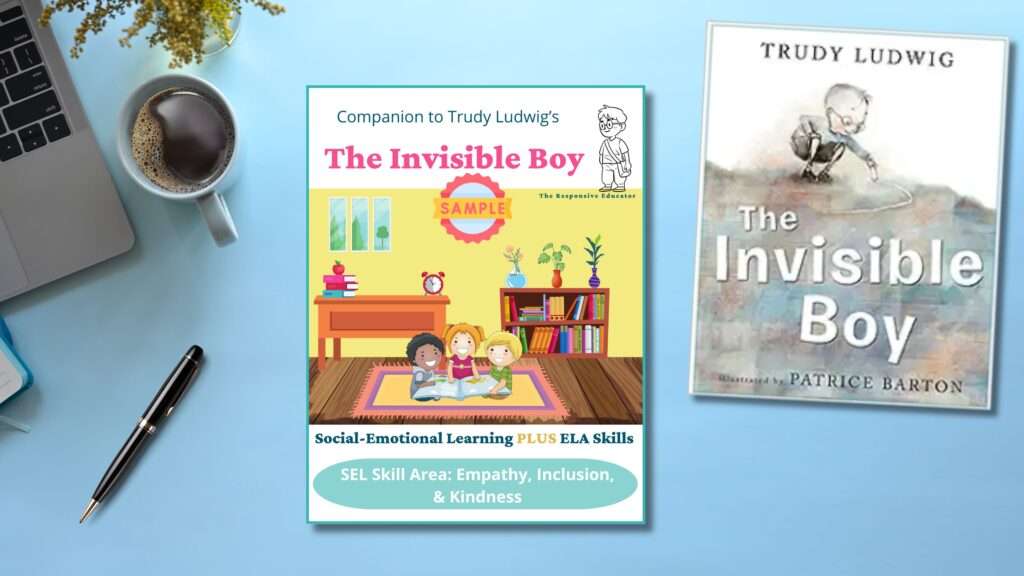


Distinguishing between tattling and telling can be a challenge for young students, but learning this skill is essential for building a respectful and supportive classroom environment. Tattling often stems from a desire for attention or a need to control others’ behavior, whereas telling is an important way for students to communicate real concerns and seek help when necessary. Helping children understand this difference not only promotes healthier social dynamics but also empowers them to use their voices appropriately and effectively.
Books that explore the concept of tattling versus telling offer relatable scenarios and characters that help children recognize when it’s best to involve an adult and when to handle situations independently. These stories give students tools to understand their own motivations and think critically about how to respond to situations that might otherwise lead to unnecessary tattling. Whether you’re a parent or a teacher, these books can spark important discussions, reinforcing empathy, responsibility, and self-awareness in children while keeping the classroom or home environment positive and focused on learning.
For some of the books on this site, I’ve created interactive read-alouds designed to enrich their use in the classroom. These resources include discussion questions, activities, and prompts that actively engage students and deepen their understanding of key themes. More interactive read-alouds are on the way! If there’s a specific book you’d like to see included, please reach out using the contact form at the bottom of the page.
For more insights on supporting social-emotional learning (SEL) and incorporating interactive read-alouds into your teaching, explore these posts:
(As an Amazon affiliate, I earn a small commission if you purchase products through the links on my posts. Thank you for your support!)
Summary: A Bad Case of Tattle Tongue by Julia Cook introduces us to Josh, a boy who can’t seem to stop tattling on everyone around him, from his classmates to his own family. One night, he wakes up with an outrageous case of “Tattle Tongue”—a long, yellow tongue covered in purple spots. This humorous twist leads Josh to understand the difference between tattling and reporting serious concerns. Guided by “The Tattle Rules,” Josh learns how to decide when it’s necessary to tell an adult and when he should try to handle the issue on his own.
Description: Julia Cook’s A Bad Case of Tattle Tongue is a humorous, engaging way to address the common challenge of tattling in young children. The story creatively illustrates when to speak up and when to let minor issues go. With memorable phrases like “Mind Your Own Beeswax” and clear guidance on “The Tattle Rules,” this book gives children language and tools to better understand appropriate boundaries in social interactions. The bright, fun illustrations make it appealing for young readers, while the relatable scenarios make it a practical addition to classrooms, homes, and counseling sessions.
Reviews and Considerations: Readers consistently praise A Bad Case of Tattle Tongue for its engaging approach to handling tattling, a behavior that often disrupts classrooms and family dynamics. Many parents and teachers find the book effective in helping children understand the difference between unnecessary tattling and important reporting, with several noting that children quickly adopt phrases like “Danger Ranger” or “Mind Your Own Beeswax” to navigate social situations. The story is described as “a must-have for any classroom” and is appreciated for making a complex concept accessible and memorable.
Some reviewers suggest that younger children may initially interpret the humor literally, thinking they might actually “catch” Tattle Tongue, which can require some gentle guidance. Additionally, educators emphasize the importance of reinforcing that children should report anything that feels unsafe, as younger readers may need help understanding the nuances between “dangerous” situations and minor conflicts. Despite these considerations, A Bad Case of Tattle Tongue remains a highly recommended tool for teaching social boundaries and independence in a way that resonates with children.

Summary: Don’t Squeal Unless It’s a Big Deal by Jeanie Franz Ransom is a lively and humorous story that follows a group of piglets who can’t stop tattling on each other in their classroom. Mrs. McNeal, their teacher, gently helps them understand the difference between “kid-sized” and “adult-sized” problems, guiding them to recognize when they can solve issues on their own and when it’s necessary to ask for help. Through playful wordplay and funny scenarios, young readers learn when to “squeal” and when to handle things independently, promoting problem-solving and empathy among classmates.
Description: This award-winning book uses humor and relatable characters to address the common childhood behavior of tattling. Set in a classroom full of playful piglets, Don’t Squeal Unless It’s a Big Deal provides a creative way to teach children about responsible reporting versus tattling. Mrs. McNeal’s guidance on identifying “big deal” situations versus minor issues helps children understand that not all problems require adult intervention. The story also includes a valuable note for parents and teachers, offering insights on how to guide children through this stage of social development. Filled with engaging illustrations and playful language, this book is both a fun read and a helpful social skills tool.
Reviews and Considerations: Don’t Squeal Unless It’s a Big Deal is widely appreciated by parents, teachers, and counselors for its funny, approachable way of addressing tattling. Educators find it effective in teaching young children when it’s appropriate to seek help, using terms like “kid-sized” and “adult-sized” problems to reinforce problem-solving skills. Parents enjoy the relatable piglet characters, noting that the story resonates with children without being overly direct or preachy. While the book is praised for its humor, a few readers feel the ending could be stronger and suggest adult guidance when discussing certain parts, such as the teacher’s humorous slip.

Summary: Miles McHale, Tattletale by Christianne C. Jones follows Miles, a well-known tattletale who often reports on his classmates for even the smallest of actions. When the tattling becomes too much, his teacher initiates a “Tattle Battle” to help Miles and his classmates learn when it’s appropriate to tell an adult and when they should try handling situations on their own. Through fun rhymes, colorful illustrations, and relatable scenarios, Miles faces the challenge of understanding boundaries and recognizing the difference between tattling and responsible reporting.
Description: This charming story is a great tool for addressing tattling with young children in a relatable way. Miles McHale, Tattletale provides a lighthearted yet clear message about social boundaries and independent problem-solving. Through Miles’s journey in the “Tattle Battle,” children are guided on when to “report” and when to handle minor issues independently. Teachers and parents appreciate the book’s straightforward examples and catchy rhyming phrases, which help reinforce the lesson in a memorable way. The book also includes a “Tattle Battle Pledge,” making it an interactive and engaging read for classrooms and home libraries alike.
Reviews and Considerations: Miles McHale, Tattletale has received positive feedback from parents, teachers, and caregivers for its engaging approach to distinguishing between tattling and necessary reporting. Readers love how the story’s lighthearted tone and memorable rhymes make it easy for young children to understand when to speak up. Educators find it especially useful in classroom settings, noting that students respond well to the “Tattle Battle” concept. Some reviewers feel that a few more examples of “reporting” scenarios would strengthen the message, but overall, Miles McHale, Tattletale remains a highly recommended book for teaching social boundaries and independent problem-solving skills.

Summary: The Tattletale Dragon by Steve Herman follows Diggory Doo, a dragon who takes rule-following to the extreme, tattling on others for even the smallest infractions. When Diggory begins reporting every little misstep, his owner teaches him the difference between tattling and telling, helping him understand when it’s appropriate to ask for help from an adult and when to let things go. This engaging story helps young readers learn social boundaries and discern the importance of reporting serious issues over minor grievances.
Description: This fun, relatable story uses the character of Diggory Doo, a dragon learning to navigate social rules, to teach children about responsible reporting versus tattling. The Tattletale Dragon combines gentle humor with clear lessons, making it accessible and enjoyable for young readers. With vivid illustrations and memorable interactions, the book offers a helpful framework for kids to understand when they should seek adult assistance. Herman’s book is especially popular among parents, teachers, and counselors for addressing tattling behaviors in a lighthearted way that encourages empathy and self-reflection.
Reviews and Considerations: The Tattletale Dragon has been warmly received by educators, parents, and children alike, praised for its ability to clarify the difference between tattling and necessary reporting. Parents appreciate how the story helps children understand the balance of “minding their own business” while knowing when to report concerns. Teachers find it especially effective for fostering social skills in classrooms, particularly among younger students. While a few reviewers note that some phrases, such as “mind your own business,” may require clarification, most agree that the book’s message effectively supports social boundaries and healthy communication among peers.



Sign up now to receive a free sample of “The Invisible Boy” Interactive Read-Aloud Lesson Plan! This comprehensive resource includes engaging activities designed to help your students develop empathy and inclusion.
By signing up, you will also join our newsletter, where you’ll receive:
Join our community of educators dedicated to fostering social-emotional growth in the classroom!

( ) = Coming Soon
Body Safety & Personal Boundaries
(Conflict Resolution)
(Compromise / Cooperating)
Feelings & Emotional Awareness
(Sensory Processing)
(Sharing)
(Speaking Politely)
(Teasing & Bullying)
(Trauma Recovery)